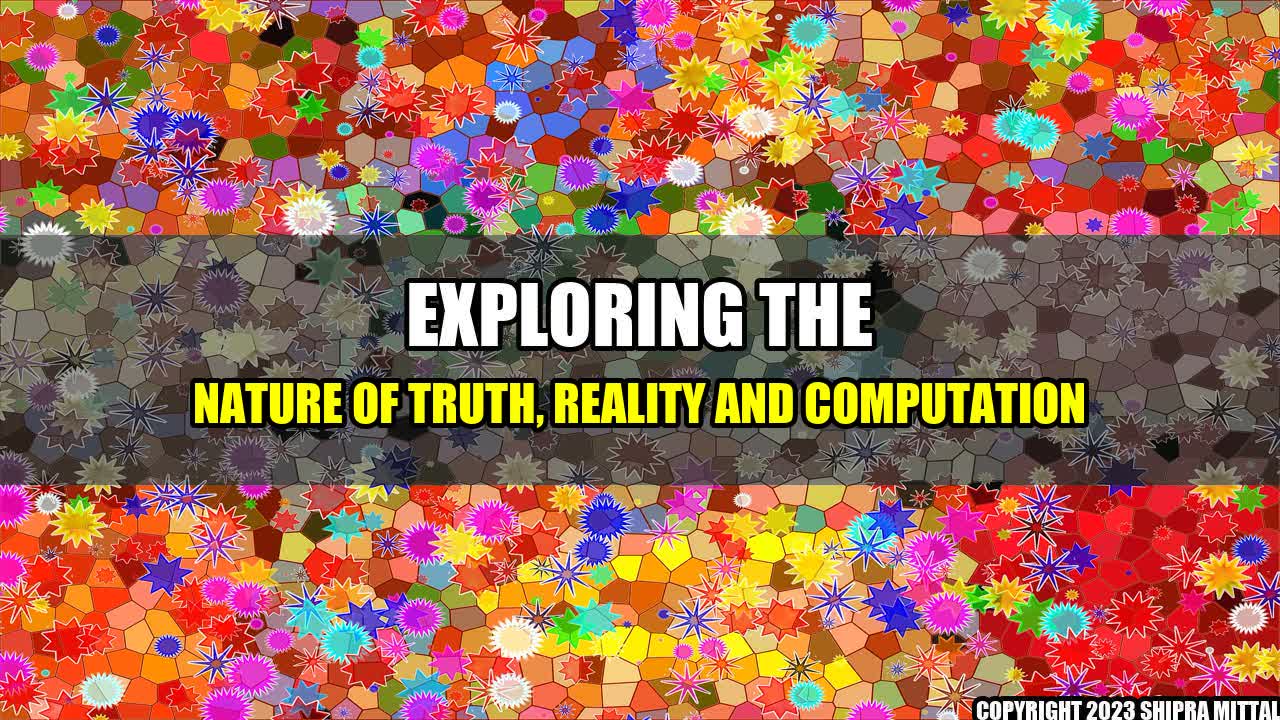Once upon a time, in a far-off land, there was a man named Neo. He lived an ordinary life, working as a software engineer in a tech company. However, he felt like there was something missing in his life, something he could not quite put his finger on.
One day, Neo was contacted by a mysterious hacker named Morpheus, who offered to show him the truth about the world he lived in. Morpheus claimed that Neo was living in a simulated reality, where everything he saw and experienced was nothing but an illusion created by a powerful artificial intelligence known as the Matrix.
Neo was skeptical at first, but his curiosity got the better of him, and he decided to follow Morpheus' lead. What followed was a journey of self-discovery, as Neo learned the truth about reality, computation, and the nature of truth itself.
What is the Matrix?
The concept of the Matrix may seem like pure science fiction, but it is rooted in some fundamental ideas in philosophy, computer science, and physics.
The Matrix is a simulated reality created by a super-intelligent computer program that controls every aspect of its inhabitants' lives. To them, the Matrix appears to be the real world, complete with cities, buildings, people, and all the sensory experiences that come with them.
The Matrix is portrayed in the movie as a dystopian world, where human beings are used as power sources for the machines. However, the idea behind the Matrix is not necessarily evil or malicious. It is simply a way for the machines to control and manipulate their surroundings, just like we humans do with our computers, smartphones, and other technologies.
Reality: Illusions and Deceptions
If the Matrix is a simulated reality, what is the real reality like? This is a question that has baffled philosophers, scientists, and theologians for centuries.
One of the earliest philosophers to question the nature of reality was Plato, who believed that what we see and experience in the physical world is nothing but a shadow or a copy of the eternal Forms or Ideas that exist in a non-physical realm.
The idea that reality is not what it seems is also a popular theme in Eastern philosophy, particularly in Buddhism and Hinduism, where the concept of maya or illusion is central to their worldviews.
While the debate about the nature of reality is still ongoing, one thing is certain: our perception of reality is not always accurate or reliable. Our senses can be easily deceived by optical illusions, hallucinations, and other cognitive biases.
Furthermore, technology has made it possible to create increasingly realistic simulations and virtual environments that can trick our brain into thinking that we are in a different world altogether. From video games to virtual reality, we are constantly blurring the line between what is real and what is not.
Computation: The Building Blocks of Reality
If our perception of reality is not always accurate, how can we be sure that anything we experience is real? According to some scientists and philosophers, the answer lies in computation.
In recent years, a growing number of thinkers have proposed that reality itself may be a form of computation, a vast and complex mathematical algorithm that generates the world around us. This idea is often referred to as the digital physics hypothesis or the simulation argument.
Proponents of this hypothesis argue that the laws of physics and the behavior of matter and energy can be understood as a form of computation, similar to the way a computer processes information. They point to the fact that many phenomena in the natural world can be modeled using mathematical equations and algorithms, from the behavior of subatomic particles to the evolution of galaxies.
The idea that reality is a form of computation raises some profound questions about the nature of truth and reality. If what we experience as reality is a digital simulation, how can we be sure that anything is true? How do we know that our perceptions and experiences are not just the product of a glitch in the code?
While these questions are still largely speculative, the notion that computation is the building block of reality is gaining traction among some of the leading minds in science and philosophy.
Conclusion
As the story of Neo and the Matrix illustrates, the nature of truth, reality, and computation is a complex and fascinating topic that has puzzled humans for centuries. While we may never know the ultimate answers to these questions, contemplating them can help us gain a deeper understanding of the world around us and our place within it.
Here are three key takeaways from this article:
- Our perception of reality is not always accurate or reliable.
- Computation may be the underlying mechanism that generates reality.
- The nature of truth and reality is a philosophical and scientific question that is still being debated.
So the next time you watch The Matrix, remember that it's not just a movie, but a thought-provoking exploration of some of the most profound questions of human existence.

Akash Mittal Tech Article
Share on Twitter Share on LinkedIn